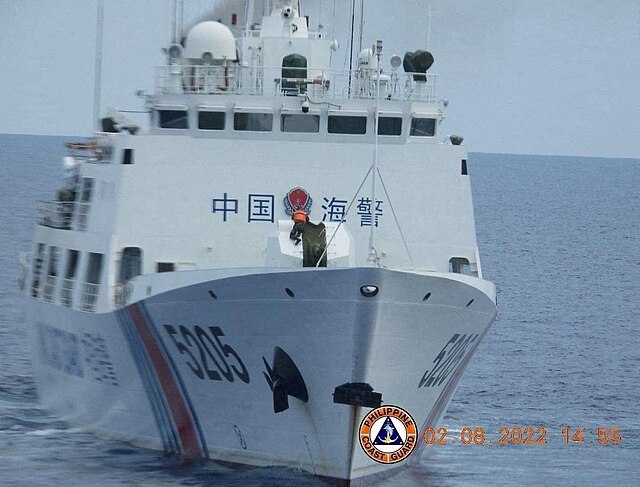Tensions in the South China Sea escalated dramatically on Monday as China's Coast Guard accused a Philippine vessel of deliberately colliding with one of its ships in what Beijing described as a "dangerous and unprofessional" manner. The incident, which occurred at approximately 3:24 a.m. local time, further strained relations between the two nations, which have long been at odds over territorial claims in the region.
According to statements released by the China Coast Guard, the clash took place after the Philippine vessel allegedly ignored multiple warnings from Chinese authorities. A short video posted on the Coast Guard's social media platforms captured the moment of the collision, showing the Chinese vessel involved to be a coast guard ship. Beijing has claimed that the Philippine ship entered waters near the Second Thomas Shoal after being blocked from accessing the nearby Sabina Shoal.
Gan Yu, a spokesperson for the China Coast Guard, was quick to condemn the actions of the Philippine vessel, asserting that two Philippine Coast Guard ships had "illegally intruded" into the waters around Sabina Shoal in the early hours of Monday. "The Philippines has repeatedly provoked and caused trouble, violating the temporary arrangements between China and the Philippines," Gan said, referring to an agreement made in July to mitigate tensions in the contested area.
Gan further warned that the Philippines must "immediately stop infringement and provocation" or face "all consequences" for its actions. China's maritime security authorities have also stated that they took "control measures" against the Philippine vessels in accordance with Chinese law, though specifics of these measures were not disclosed.
The Philippine government has yet to issue an official response to these allegations. However, Jonathan Malaya, a spokesperson for the Philippines' National Security Council, previously stated that the country's actions in the South China Sea are not intended to provoke China but to assert its sovereign rights over its territorial waters. "Our actions are lawful and aimed at protecting our national interests," Malaya said on Monday.
The recent incident follows a provisional agreement reached between China and the Philippines in July, which was intended to address and reduce the frequency of altercations near the Second Thomas Shoal. Despite this agreement, China has continued to face sharp criticism from Western nations for its aggressive tactics in the South China Sea, particularly its efforts to block Philippine attempts to resupply troops stationed aboard a navy ship intentionally grounded on the shoal 25 years ago.
China's claim over the majority of the South China Sea, including both the Sabina and Second Thomas Shoals, has been a longstanding point of contention. In 2016, the Permanent Court of Arbitration in The Hague ruled that Beijing's expansive territorial claims in the region had no basis under international law. However, China has consistently rejected this ruling, continuing to assert its dominance over the disputed waters.
The South China Sea is one of the world's most strategically vital regions, with its waters being a crucial maritime route through which a significant portion of global trade passes. The area is also believed to be rich in natural resources, including oil and gas reserves, making it a highly contested zone among several nations, including Vietnam, Malaysia, and Brunei, in addition to China and the Philippines.
The recent collision raises concerns about the potential for further military confrontations between China and the Philippines, which could draw in other nations, including the United States, due to its mutual defense treaty with the Philippines. The situation underscores the fragile nature of peace in the South China Sea, where even minor incidents can quickly escalate into significant international conflicts.





